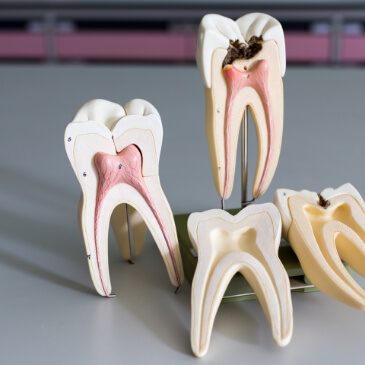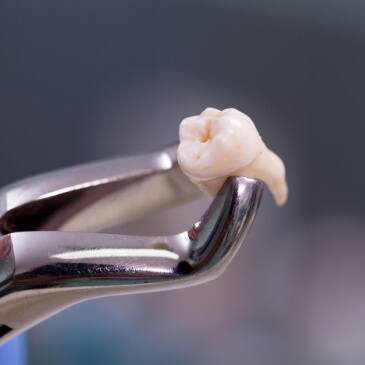Emergency Dentistry – Allen, TX
Putting a Stop to Dental Pain
One minute you’re enjoying a nice snack, the next you’re clutching your jaw due to intense pain. Dental emergencies can strike at any time, but luckily your team at Oak Point Dental is here to get you out of pain and reverse the damage as quickly as possible. We suggest keeping our practice’s number in your phone so that when you need to see Dr. Ahn as soon as possible for emergency dentistry in Allen, you can call us immediately.
Why Choose Oak Point Dental for Emergency Dentistry?
- Relaxing Nitrous Oxide Available
- Patients of All Ages Welcome
- Honest, Comprehensive Dental Care
How We Treat Dental Emergencies

- Step one is for you to call our office to let us know about the situation. Our team will give you first-aid instructions and arrange to see you in a timely manner.
- Once you arrive, we’ll focus on stopping any immediate pain and figuring out the source of your emergency. The examination process may involve taking X-rays to see if there’s an infection or unseen damage.
- We’ll explain our findings to you and outline the available treatment options along with the associated costs and likely timeline.
- Finally, we’ll carry out the chosen form of treatment to stop your pain, revitalize your teeth, and protect your oral health.
The Most Common Dental Emergencies
There’s no singular definition that describes all dental emergencies. They can have wildly different causes and symptoms, but the one thing they all have in common is that they should be treated as soon as possible. If you or someone in your family encounters one of the common dental emergencies below, get in touch with us to determine your next steps.
Understanding the Cost of Dental Emergencies

You’ll naturally want to know how much emergency dental care will cost before you start any treatment. Once we’ve examined your mouth and figured out what the source of your pain is, we can give you our recommendations and explain how much you can expect to pay. Our goal is to end your discomfort and repair any damage to your smile while protecting your teeth and gums from further harm; rest assured that we will only recommend treatments that are truly needed to restore your oral health.
Keys to Preventing Dental Emergencies

Avoiding dental emergencies can be as simple as practicing the right habits. That naturally means brushing and flossing two times a day while attending your regular dental checkups every six months. You also need to be mindful of how you’re using your teeth on a regular basis. Do not tear open packages with your mouth; get some scissors or another tool to do the job instead. If you crunch ice or bite your fingernails, take whatever steps you need to in order to break these habits.
Root Canal Treatment

An infected tooth doesn’t necessarily need to be pulled. Instead, we can remove the inflamed pulp along with the bacteria causing the damage in the first place. This is known as a root canal treatment, and despite its reputation it should be no more painful than having a filling placed. On the contrary, you’ll find that root canal treatment goes a long way towards helping you escape the pain caused by your infection. Call us immediately if you have a severe toothache that might call for a root canal.
Tooth Extractions

A tooth might be beyond salvaging if it’s so damaged that a restoration can’t be used or if an infection has become so severe a root canal is no longer effective. In these situations, the only option may be to remove the affected tooth altogether. We’ll be as gentle as possible and take every step to keep you comfortable during the tooth extraction process. Once your tooth has been removed, we can help you replace it as quickly as possible with a bridge or another restoration.
Dental Emergency FAQs

If you have an urgent oral health problem, don't panic! Your emergency dentist in Allen, Dr. Ahn, is here to make a stressful day easier. He will take the time to explain everything and address any concerns during your consultation. While you wait for your appointment, here are the answers to a few frequently asked questions.
How Should I Sleep With a Toothache?
If you have a toothache, you don't have to spend the night tossing and turning. You can reduce your risk of discomfort at bedtime by skipping any hot or cold foods and drinks. Eat soft foods for dinner and chew on the opposite side of your mouth. Take an OTC pain reliever and gargle with salt water to reduce your discomfort. A cold compress can also numb the area temporarily. Sleep with your pillow elevated to prevent blood from pooling in your head, which can worsen a throbbing toothache.
Will a Chipped Tooth Heal?
A chipped tooth is a dental emergency in Allen because it won't heal on its own. Although your enamel is the hardest substance in your body, it can't regenerate. Once it is lost, it's gone for good. At most, a tooth may remineralize but it will be vulnerable to additional damage with no treatment. It's best to contact our office for an appointment, no matter how insignificant the chip appears. Often, dental bonding is all that's needed to treat small chips. Larger breaks may require a veneer, crown, or other treatment.
Do I Need to See a Dentist If My Chipped Tooth Doesn’t Hurt?
You should still see a dentist, even if your chipped tooth doesn't hurt. Although you may not have any pain, the inner layers of your tooth may be exposed. Not to mention, your tooth will be vulnerable to sensitivity, bacteria, and additional breaks or fractures. If the chip is minor, and you aren't in pain, you can wait a day or two to see a dentist, but don't wait too long or you may lose your tooth. Delaying treatment can cause a minor issue to turn into a big problem.
Can I Use Superglue to Fix a Broken Denture?
A broken denture can quickly ruin your day because you rely on them for your confidence and quality of life. Don't wear a damaged denture because it can cause oral injuries. Although you can't go without any teeth, don't use home remedies to fix it, like superglue. It's not intended for oral use, so it can be toxic or cause allergic reactions. Superglue also doesn't hold up well in moist environments, like your mouth. Despite your intentions, you can cause additional damage to your denture. Instead, leave the mending to professionals. Wear an old denture if possible and contact our office. We'll get you into the office quickly and provide the necessary repairs or replacements to restore your beautiful smile so you can get back to enjoying your day.
I Need a Checkup & Cleaning I Need a Dentist for My Child I Have a Cavity or Broken Tooth I am Missing One or More Teeth I Want to Improve My Smile I am Scared of the Dentist I Have Pain in My Jaw View Our Services



